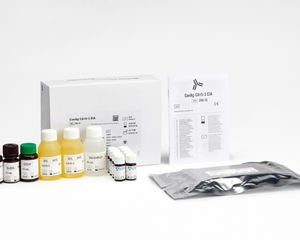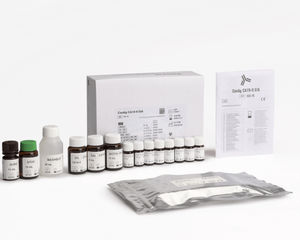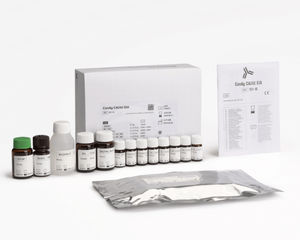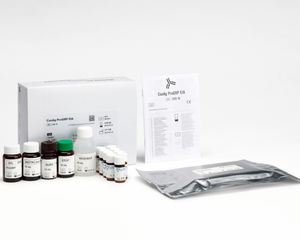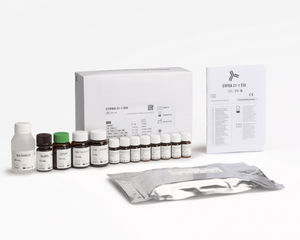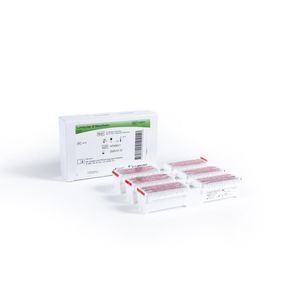
- Company
- Products
- Catalogs
- News & Trends
- Exhibitions
Monoclonal antibody CanAg®antigenfor cancersCEA
Add to favorites
Compare this product
Characteristics
- Type
- monoclonal antibody, antigen
- Applications
- for cancers
- Tested parameter
- CEA, genetic
Description
Carcinoembryonic antigen (CEA) is a glycoprotein, which was first identified in patients with colon carcinoma and in epithelial tumors of endodermal origin (gastrointestinal tract) by Gold and Freedman1. The CEA molecule is quite heterogeneous due to the carbohydrate contents (50 % - 60 %). It is soluble in perchloric acid and has a molecular weight of about 175.000 to 200.000 Daltons2.
Immunological and genetic characterization of CEA has identified a family of CEA-like molecules sharing common antigenic determinants. The most relevant CEA-like molecule is NCA (nonspecific cross-reacting antigen) synthesized both by normal and pathological tissues. The problem of cross-reacting CEA-like molecules when assaying CEA is possible to overcome by the use of monoclonal antibodies. The CEA EIA is based on two mouse monoclonal antibodies against the Gold epitopes IV and V3, 4.
CEA is secreted from tumor cells and is a widely used serological marker of gastrointestinal carcinomas, lung cancer, and breast cancer. In colorectal cancer, the clinical use of CEA testing for monitoring response to therapy and for documenting progressive disease is well established5, 6. CEA may also be present in benign gastrointestinal inflammatory diseases or in hepatobiliary diseases. These observations make it necessary to emphasize that the CEA assay should not be used as a cancer-screening test.
Related Searches
- FUJIREBIO test kit
- FUJIREBIO solution reagent
- FUJIREBIO blood test kit
- FUJIREBIO serum test kit
- FUJIREBIO immunoassay test kit
- FUJIREBIO plasma test kit
- FUJIREBIO infectious disease test kit
- FUJIREBIO research reagent
- FUJIREBIO diagnostic reagent
- FUJIREBIO laboratory reagent
- FUJIREBIO protein reagent
- FUJIREBIO molecular biology test kit
- Enzyme reagent kit
- Whole blood detection kit
- FUJIREBIO respiratory disease test kit
- Histology reagent kit
- FUJIREBIO clinical test kit
- Optical assay kit
- Cassette assay kit
- Immunology reagent
*Prices are pre-tax. They exclude delivery charges and customs duties and do not include additional charges for installation or activation options. Prices are indicative only and may vary by country, with changes to the cost of raw materials and exchange rates.




